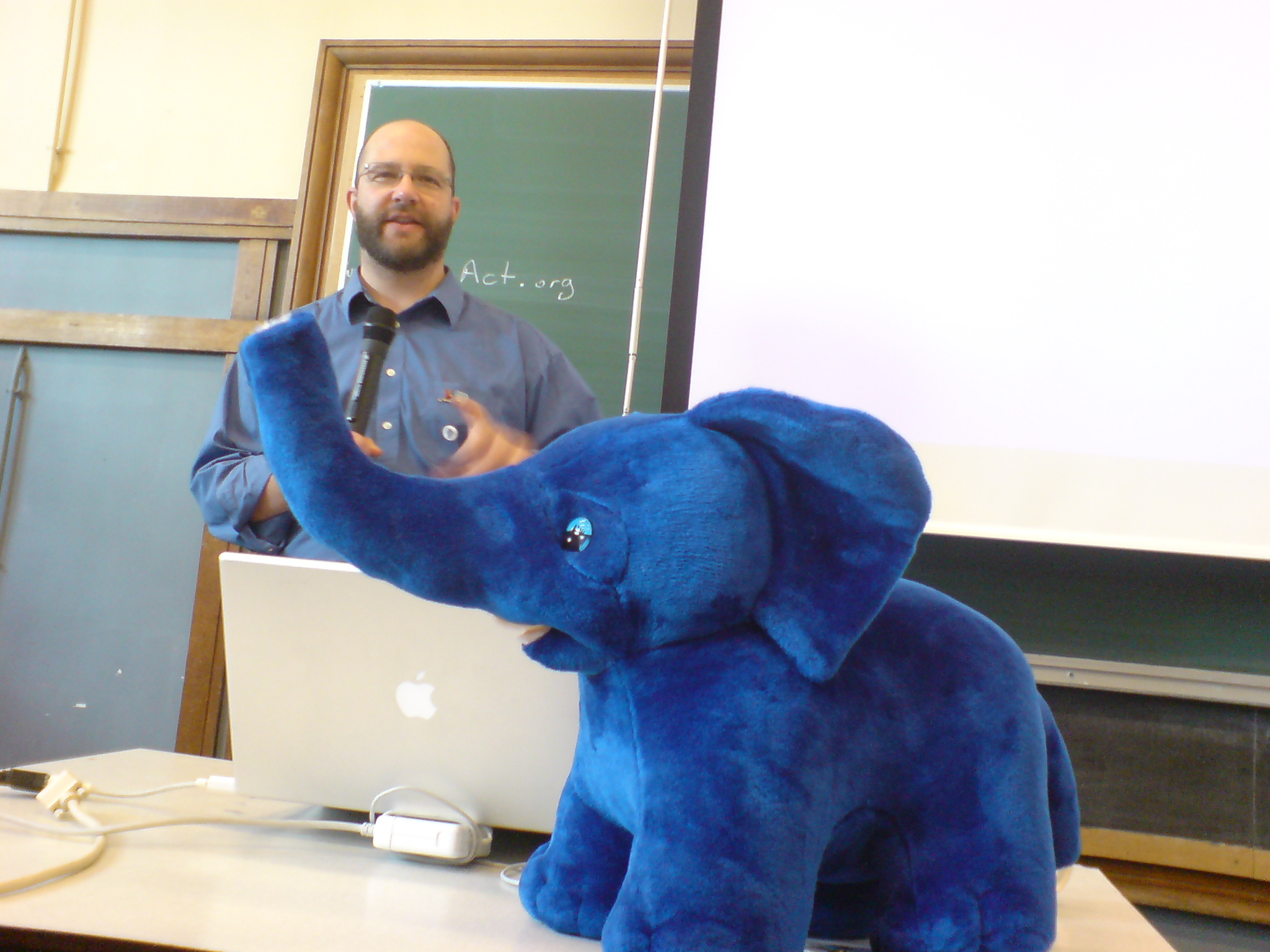PostgreSQL 8.3
 David Fetter
David FetterQuite a succesfull day for PostgreSQL af fosdem I would say: the goodies sold like mad, and the devroom (shared with FreeBSD) was packed! Between doing some volunteering for the fosdem organisation, finding people i know who also are visting fosdem, walking along the booths and visiting some other talks (a.o. the openasf ligthning talk) I unfortunately only saw two of the talks in the shared dev room. I even missed out on the FreeBSD talks, which is a shame, because I really dig FreeBSD!
At least I was present for the PostgreSQl keynote, which was brought by David Fetter. He talked about all the great new features the recently released PostgreSQL 8.3 has. In his talk, David alluded to some of the things Simon Riggs would later elaborate on in his talk titled ‘PostgreSQL 8.3 performance features’.
In case you missed it, there are quite some performance improvements in 8.3. One of those is HOT (heap-only tuples), which is sort of a mini-vacuum which kicks in as soon as a page has filled up. Another is asynchronous transactions, where you can say that for certain transactions, writing it to the WAL log can be delayed.
 Simon Riggs
Simon RiggsAnother great feature is the simultaneous sequential scan. One of the more expensive operations on larger tables is the sequential scan, where each record is loaded from disk one-by-one. When two queries have to scan the same table, a lot of disk-i/o is duplicated. With the simultaneous scanning, the second query will piggy-back on the scan that is already going on.
I haven’t put 8.3 in production yet, but having heard Simon present some of the performance features, i’m more likely to switch soon. Especially because 8.3 has better options to diagnose performance problems, which i’m eager to check out.
Mind you, these performance improvements are no silver bullets. For most of them, you need to be aware of the limits and conditions of each of them. And most importantly, these features have been designed with certain use cases in mind. What is needed is more exhaustive testing, more analysis of how things work in cases that might not have been thought of by the developers.
Tonight is the free beer party at imatix, by former FFII president Pieter Hintjens. I was planning on going there, but we only finished dinner around 23:00, and i’m way too tired to drink belgian beers. It is a pity, i was looking forward to meeting Pieter and other FFII people.
Other highlights of the day were finally meeting a TWiki friend of mine, saying hi to Reinout of the wg open source of GroenLinks and buying a syllable deluxe cd. Tomorrow will be the key-signing party, the election of the first board of the PostgreSQL eu association and of course the auction of one of the two big plush elephants!


